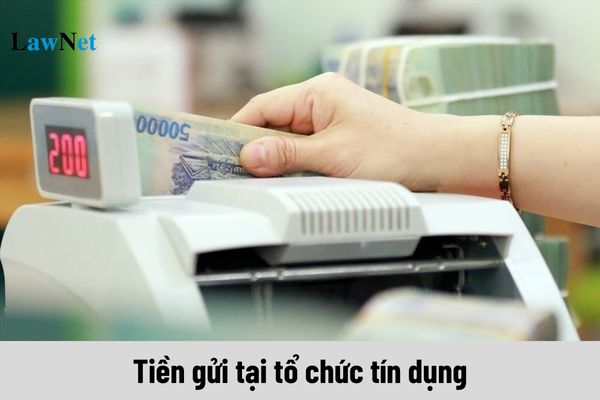Are incomes from interest on deposits at credit institutions subject to personal income tax in Vietnam?
Are incomes from interest on deposits at credit institutions subject to personal income tax in Vietnam?
Based on point g, clause 1, Article 3 of Circular 111/2013/TT-BTC, the regulations on tax-free incomes are as follows:
Tax-free incomes
- Based on the provisions of Article 4 of the Personal Income Tax Law, Article 4 of Decree No. 65/2013/ND-CP, the tax-free incomess include:
...
g) Income from interest on deposits at credit institutions, branches of foreign banks, interest from life insurance contracts; income from interest on bonds issued by the Government of Vietnam.
...
Thus, income from interest on deposits at credit institutions is subject to personal income tax exemption. Therefore, income from interest on deposits at credit institutions is not required to pay personal income tax.

Are incomes from interest on deposits at credit institutions subject to personal income tax in Vietnam? (Image from the Internet)
What are the personal income tax rates in Vietnam?
* Comprehensive Personal Income Tax Rates
Based on clause 1, Article 23 of the Personal Income Tax Law 2007, the comprehensive personal income tax rate applies to taxable income from capital investment, capital transfer, real estate transfer, lottery winnings, royalties, franchise, inheritance, and gifts.
According to clause 2, Article 23 of the Personal Income Tax Law 2007 as amended by clause 7, Article 2 of the Law Amending Tax Laws 2014, the current comprehensive personal income tax rates are:
| Taxable Income | Tax Rate (%) |
| Income from capital investment | 5 |
| Income from royalties, franchise | 5 |
| Income from lottery winnings | 10 |
| Income from inheritance, gifts | 10 |
| Income from capital transfer as stipulated in clause 1, Article 13 of the Personal Income Tax Law 2007 Income from securities transfer as stipulated in clause 1, Article 13 of the Personal Income Tax Law 2007 |
20 0.1 |
| Income from real estate transfer | 2 |
* Progressive Personal Income Tax Rates
Based on Article 22 of the Personal Income Tax Law 2007, the progressive personal income tax rate applies to taxable income from business, salaries, and wages.
The current progressive personal income tax rates are:
| Tax Bracket | Taxable Income/Year (Million VND) |
Taxable Income/Month (Million VND) |
Tax Rate (%) |
| 1 | Up to 60 | Up to 5 | 5 |
| 2 | Over 60 to 120 | Over 5 to 10 | 10 |
| 3 | Over 120 to 216 | Over 10 to 18 | 15 |
| 4 | Over 216 to 384 | Over 18 to 32 | 20 |
| 5 | Over 384 to 624 | Over 32 to 52 | 25 |
| 6 | Over 624 to 960 | Over 52 to 80 | 30 |
| 7 | Over 960 | Over 80 | 35 |
Which entities are personal income taxpayers in Vietnam?
Based on Article 2 of Decree 65/2013/ND-CP, individuals liable for personal income tax include resident individuals and non-resident individuals with taxable income as provided by law.
* Scope of taxable income determination for taxpayers:
- For resident individuals, taxable income is income generated within and outside the territorial boundaries of Vietnam, regardless of the place of income payment;
- For non-resident individuals, taxable income is income generated within Vietnam, regardless of the place of income payment.
* A resident individual is a person meeting one of the following conditions:
- Being present in Vietnam for 183 days or more in a calendar year or for 12 consecutive months from the first day of presence in Vietnam;
An individual's presence in Vietnam as prescribed at this point is their physical presence on the territory of Vietnam.
- Having a regular place of residence in Vietnam in one of the following two cases:
+ Having a registered permanent residence per the law on residence;
+ Having a rented house to live in Vietnam under the law on housing, with the rental contracts' terms lasting from 183 days or more in a tax year.
In case an individual has a regular place of residence in Vietnam as prescribed at this point but is physically present in Vietnam for less than 183 days in the tax year and cannot prove being a resident of another country, that individual shall be considered a resident in Vietnam.
* A non-resident individual is a person who does not meet the conditions of a resident individual.
What is the tax period for personal income tax for resident and non-resident individuals in Vietnam?
Based on Article 7 of the Personal Income Tax Law 2007 as amended by clause 3, Article 1 of the Amended Personal Income Tax Law 2012, the tax period for personal income tax for resident and non-resident individuals is as follows:
- The tax period for resident individuals is stipulated as follows:
+ The tax period is annually applicable to income from business; income from salaries and wages;
+ The tax period is for each occurrence of taxable income for income from capital investment; income from capital transfer, excluding income from securities transfer; income from real estate transfer; income from lottery winnings; income from royalties; income from the franchise; income from inheritance; income from gifts;
+ The tax period is for each transfer or annually for income from securities transfer.
- The tax period for non-resident individuals is calculated for each occurrence of taxable income applicable to all taxable incomes.

